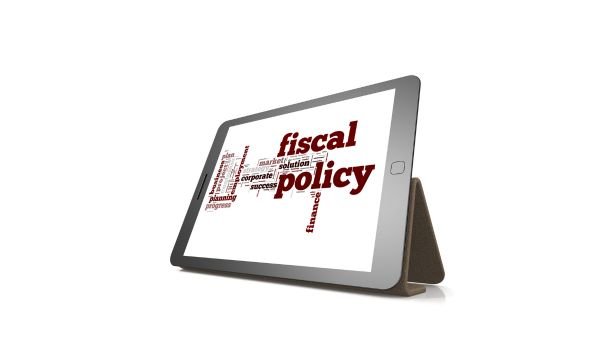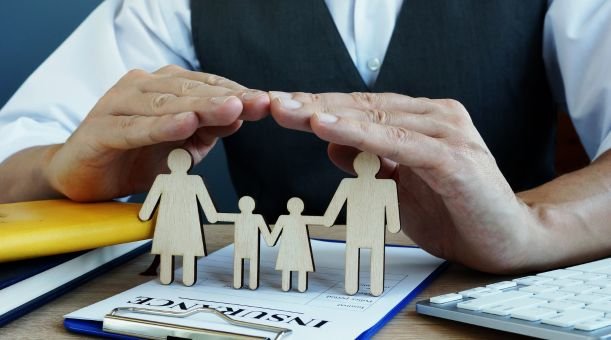Fiscal policy refers to the government’s use of taxes, spending, and borrowing to influence the economy. By implementing fiscal policies, governments can impact various aspects of the economy, including economic growth, inflation, employment, and income distribution. In this response, we will discuss the 5 Ways Fiscal Policy Shapes the Economy and Your Future.
Importance of Fiscal Policy:
- Fiscal policy can influence economic growth and stability.
- It can be used to manage inflation and unemployment.
- It can address income inequality and support social welfare programs.
- Fiscal policy can impact national debt and long-term economic stability.
- Understanding fiscal policy can help individuals make informed financial decisions.
How Fiscal Policy shapes the economy?

Fiscal policy can shape the economy in various ways, including:
- Influencing the level of government spending, which can impact economic growth and employment levels.
- Adjusting tax policies can affect consumer and business behavior, as well as income distribution.
- By managing inflation and interest rates, which can impact investment and borrowing decisions.
- By supporting social welfare programs, which can address income inequality and poverty.
- By managing national debt and ensuring long-term economic stability.
Fiscal Policy and Taxes:

Definition of taxes: Taxes are mandatory payments that individuals, businesses, and other entities are required to make to the government. These payments are typically levied on income, goods and services, property, and other sources of revenue.
Types of taxes:
- Income taxes
- Sales taxes
- Property taxes
- Corporate taxes
The role of taxes in Fiscal Policy: Taxes are a key tool in fiscal policy. Governments can use taxes to raise revenue to fund public goods and services, such as infrastructure projects, education, and healthcare. Additionally, taxes can be used to influence economic behavior and outcomes. For example, tax policies can incentivize certain behaviors, such as investing in renewable energy, or disincentivize other behaviors, such as smoking.
The effect of taxes on the economy: Taxes can have both positive and negative effects on the economy. On the one hand, taxes can raise revenue to fund public goods and services that can support economic growth. On the other hand, taxes can reduce disposable income, which can impact consumer spending and investment. Additionally, high taxes can create disincentives for businesses and individuals to work and invest, which can negatively impact economic growth.
Examples of tax policies: There are several examples of tax policies that governments can use to influence economic outcomes. Some examples include:
- Progressive income tax policies
- Corporate tax policies.
- Excise taxes on goods
- Sales tax exemptions or reductions on certain goods or services
Government Spending
Definition of Government Spending: Government spending refers to the expenses incurred by the government to fund public goods and services, such as infrastructure, defense, education, healthcare, and social welfare programs.
Types of Government Spending:
- Capital spending
- Current spending
- Transfer payments
The role of Government Spending in Fiscal Policy: Government spending is a key tool in fiscal policy. Governments can use spending to stimulate economic growth, address income inequality, and support social welfare programs. Additionally, government spending can be used to stabilize the economy during periods of recession or inflation.
The effect of Government Spending on the economy: Government spending can have both positive and negative effects on the economy. On the one hand, spending on public goods and services can support economic growth by creating jobs, improving infrastructure, and stimulating consumer spending. On the other hand, high levels of government spending can lead to budget deficits and national debt, which can negatively impact long-term economic stability.
Examples of Government Spending policies:
- Infrastructure spending
- Social welfare programs
- Military spending
- Education spending
Fiscal Policy and Employment

The relationship between Fiscal Policy and Employment: Fiscal policy can have a significant impact on employment levels. Government spending on public goods and services can create jobs, while tax policies can incentivize businesses to hire more workers or invest in new technologies.
Fiscal Policy’s Impact on job creation: Fiscal policies that stimulate economic growth, such as infrastructure spending, can create new job opportunities in various sectors. Additionally, tax policies that provide incentives for businesses to hire or invest can also lead to job creation.
Fiscal Policy’s impact on job loss: Fiscal policies can also lead to job loss in certain sectors. For example, government spending cuts or tax policies that disincentivize certain industries may lead to job losses in those sectors.
The importance of job creation for the economy: Job creation is important for a healthy and growing economy. Employment levels impact consumer spending, business investment, and overall economic activity.
Examples of Fiscal Policies :
- Infrastructure spending on roads, bridges, and public transportation
- Tax credits for businesses
- Unemployment benefits and other social welfare programs t
Fiscal Policy and Inflation
Definition of Inflation: Inflation refers to the general increase in prices of goods and services in an economy over time.
The role of Fiscal Policy in controlling inflation: Fiscal policy can be used to control inflation through various measures, such as adjusting tax policies and government spending levels. For example, reducing government spending or increasing taxes can reduce the amount of money in circulation, which can help control inflation.
The effects of inflation on the economy: Inflation can have both positive and negative effects on the economy. On the one hand, moderate levels of inflation can stimulate economic growth by encouraging consumer spending and investment. On the other hand, high levels of inflation can lead to reduced purchasing power, lower consumer confidence, and other negative economic impacts.
Examples of Fiscal Policies :
- Decreasing government spending
- Increasing taxes
- Increasing interest rates
- Reducing transfer payments
fiscal Policy and Economic Growth

Economic growth refers to an increase in a country’s production and consumption of goods and services over time. It is a key indicator of a country’s economic health and can lead to higher living standards and improved quality of life for its citizens.
The role of Fiscal Policy in promoting economic growth: Fiscal policy can play an important role in promoting economic growth by encouraging investment, increasing productivity, and supporting innovation. By adjusting tax rates, government spending, and transfer payments, policymakers can create an environment that fosters economic growth.
The effects of economic growth on the economy:
- Increased employment opportunities and higher wages
- Improved living standards and quality of life for citizens
- Increased tax revenues for the government to invest in public goods and services
- Greater opportunities for businesses to expand and innovate
Examples of Fiscal Policies that promote economic growth:
- Lowering tax rates
- Investing in education and training programs
- Providing tax credits or subsidies
- Increasing government spending on infrastructure projects
The Importance of a Balanced Budget :
- A balanced budget means that a government’s total revenue equals its total spending.
- It can help to promote fiscal responsibility and accountability.
- A balanced budget can help to avoid excessive borrowing and the accumulation of debt.
- It can also help to promote economic stability and prevent inflation.
- A balanced budget can lead to greater confidence from investors and creditors, which can help to lower borrowing costs.
- However, achieving a balanced budget can sometimes be challenging, particularly during periods of economic recession or other unexpected events.
The Pros and Cons of Fiscal Policy
| Benefits of Fiscal Policy |
| – Stabilizes the economy during periods of recession or inflation |
| – Supports economic growth and job creation |
| – Promotes social welfare through government spending programs |
| – Reduces income inequality through progressive taxation |
| Drawbacks of Fiscal Policy |
| – Can be subject to political bias and influence |
| – Can lead to budget deficits and the accumulation of debt |
| – Can create unintended consequences or distortions in the economy |
| Challenges of Implementing Fiscal Policy |
| – Requires careful coordination and planning among policymakers |
| – Can be difficult to predict the effectiveness of fiscal policy |
| – Can face opposition from interest groups or other stakeholders |
The Future of Fiscal Policy
| The Future of Fiscal Policy | Description |
| Changes in Fiscal Policy in Response to global events | As technology continues to advance, there is potential for fiscal policy to become more targeted and efficient. For instance, governments may use artificial intelligence and big data analytics to better understand the needs of their populations and allocate resources accordingly. At the same time, there is a risk that technology could exacerbate existing inequalities if certain groups are left behind or if privacy concerns are not adequately addressed. |
| The Role of Fiscal Policy in the Future of the Economy | The COVID-19 pandemic has highlighted the importance of fiscal policy in responding to global crises. In the future, we may see greater cooperation between countries in implementing coordinated fiscal responses to global events such as climate change or economic shocks. However, there is also a risk of protectionist policies and political polarization, which could hinder such cooperation. |
| The role of Fiscal Policy in the Future of the Economy | In the coming years, fiscal policy is likely to play a critical role in addressing some of the major challenges facing the global economy, such as climate change, demographic shifts, and income inequality. Governments may need to implement more long-term, sustainable fiscal policies that take into account these challenges and prioritize investment in areas such as renewable energy, education, and healthcare. However, there may also be pressure to prioritize short-term gains over long-term investments, particularly in the face of political and economic uncertainty. |
Conclusion
Fiscal policy plays a critical role in managing the economy, addressing income inequality, and responding to global events. The future of fiscal policy will likely be shaped by advances in technology, global challenges such as climate change, and political and economic uncertainty. As we navigate these changes, it will be important to prioritize long-term, sustainable policies that promote economic growth and stability while addressing the needs of all members of society.
Fiscal Policy Shapes the Economy and Your Future Fiscal Policy Shapes the Economy and Your Future Fiscal Policy Shapes the Economy and Your Future Fiscal Policy Shapes the Economy and Your Future Fiscal Policy Shapes the Economy and Your Future Fiscal Policy Shapes the Economy and Your Future Fiscal Policy Shapes the Economy and Your Future Fiscal Policy Shapes the Economy and Your Future Fiscal Policy Shapes the Economy and Your Future Fiscal Policy Shapes the Economy and Your Future Fiscal Policy Shapes the Economy and Your Future Fiscal Policy Shapes the Economy and Your Future Fiscal Policy Shapes the Economy and Your Future Fiscal Policy Shapes the Economy and Your Future Fiscal Policy Shapes the Economy and Your Future Fiscal Policy Shapes the Economy and Your Future Fiscal Policy Shapes the Economy and Your Future

